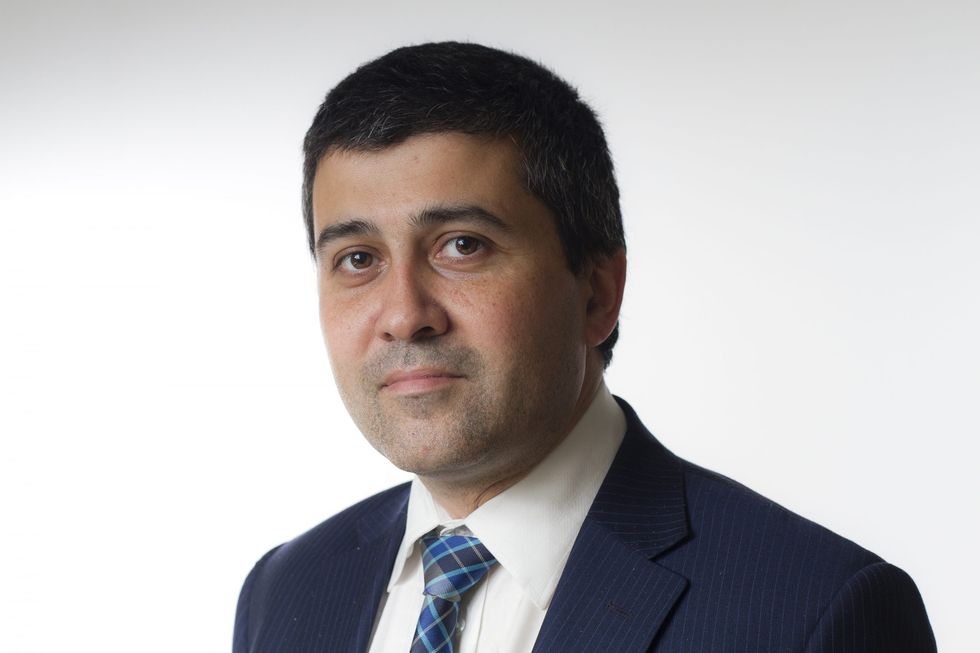WHEN Rishi Sunak first heard about the Rwanda plan, he had his doubts. Since he was Chancellor then, he had a responsibility to scrutinise the cost. But the bigger question was whether the plan would work. Though of questionable legality and significant expense, the scheme was limited in its scale. So why would its deterrent effect materialise?
Home secretary Priti Patel got the policy through. She issued a ministerial directive to override civil service public spending rules, to overcome the absence of evidence that this policy would provide value to the taxpayer. Sunak kept quiet. It would be another three months before his resignation helped to trigger Boris Johnson’s downfall as prime minister.
Yet, by the time he spoke out about Rwanda, Sunak had become an enthusiastic public champion of a massive expansion of the policy. The reason was that he was running for the leadership of the Conservative Party. Rival campaigns were briefing about his criticism of the policy inside government. Sunak declared he could fix the Rwanda plan. His argument was that, for the Rwanda plan to work, everybody crossing the Channel “needs to know their journey would end in Kigali, not Kings Cross”. If removing 300 people to Africa would make too little difference to deter future crossings, being willing to send 30,000 people to Africa might change that. "Whatever it takes" was Sunak’s message. But this was not a promise that could be kept in the real world. Rwanda’s capacity was around 300 asylum seekers a year.
Yet Sunak's ten-point campaign plan combined that impossible headline pledge with a lower profile agenda to get a grip on asylum reform, including clearing the home office asylum backlog, stronger cooperation with France and exploring safe routes to the UK.
Sunak lost that party election. Since most party members did not heed Sunak’s warnings about Liz Truss's tax cuts, he did probably lacked the political capital to persuade them on asylum too. Yet the rapid implosion of Trussonomics saw Sunak running for the leadership again. He secured the premiership, unopposed, by making a deal with Suella Braverman, who had recently resigned as home secretary, to return her to the office.

That made Sunak’s prize a fragile coalition of the party factions. His chancellor Jeremy Hunt and home secretary Braverman had clashed ferociously over immigration under Truss. Sunak has quietly sided with his chancellor in rejecting Braverman's hopes to slash the numbers granted immigration visas, but more vocally with his home secretary on Channel crossings and asylum. Yet Sunak must take responsibility for giving so much profile to his new year pledge to “stop the boats”. Unlike his other four pledges – designed to be achievable, even if progress on each is slipping – he keeps making impossible promises over Channel crossings.
Nearly 8,000 people have crossed the Channel since March 7. The prime minister has pledged that everybody crossing after that date will be detained and removed within 28 days. With little detention capacity, and nowhere to send most people, the pledge is being broken. Telling people they are permanently inadmissible for asylum will prove unsustainable, in practice and probably in law too.
The defeat of the Rwanda policy in the appeal court removes a central plank of the government’s strategy. The courts do not rule out Rwanda-type deals in principle, but it will not be lawful unless and until Rwanda has a properly functioning asylum system. Sunak will take the Rwanda case to the Supreme Court to see if it can be rescued. Yet that verdict is a sideshow now. Even if the government could remove 200 asylum seekers to Rwanda, it has no credible plan for the other 99 per cent.
The irony is that Sunak was right the first time on Rwanda. “Crucially, we cannot waste large sums of taxpayers’ money on the policy only to fall at the first legal hurdle," he wrote last summer. Yet Sunak has felt compelled by political pressure within his own party to say he can do impossible things. Because this cannot work, Sunak now faces party pressure to withdraw from the European Court of Human Rights, something he is strongly opposed to doing in government, since it would wreck his working relationships in Dublin, Washington and Brussels. Yet that pressure may increase further still ahead of the next election manifesto.
Sunak’s self-identity is as a politician who cuts through the drama to deliver. His failure on asylum undermines that reputation. The impossible promises convey the lack of political confidence of being an unelected prime minister. And the failure to deliver makes the Sunak administration look increasingly like a transitional government. Whatever the courts decide on Rwanda, it is now likely to be the next government that must grapple with how to repeal, rebuild and reform an asylum system that can deliver control and compassion, in both principle and practice.




Rishi Sunak’s Rwanda dilemma
The failure to deliver on the small boats pledge makes the Sunak administration look increasingly like a transitional government, says the expert